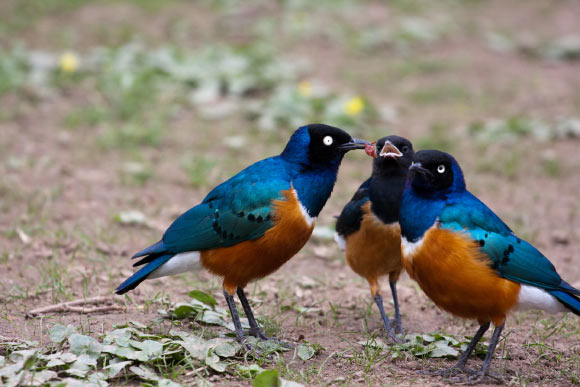Superb starlings (Lamprotornis superbus) demonstrate ‘reciprocity,’ helping each other with the expectation that the favor will eventually be returned, according to new research.

The superb starling is a species of passerine bird in the starling family Sturnidae.
This bird has a very large range and can commonly be found in East Africa, including Ethiopia, Somalia, Uganda, Kenya, South Sudan, and Tanzania.
The species forms large, mixed-kin groups with 7 to 60 members — mean group size ranges from 13 to 41 individuals.
“Starling societies are not just simple families, they’re much more complex, containing a mixture of related and unrelated individuals that live together, much in the way that humans do,” said Columbia University’s Professor Dustin Rubenstein, senior author of the study.
“The fact that animals help their direct blood relatives, or kin, with the goal of boosting their genetic fitness and prolonging their genes, has long been known in the scientific community.”
“Starlings do preferentially help their relatives, but many birds also help non-relatives.”
Professor Rubenstein and colleagues discovered that this non-relative helping occurs through the formation of these reciprocal helping relationships, which sometimes take place over many years.
Proving that this type of reciprocal behavior extends to animals other than direct relatives is difficult, though, since it requires large amounts of data gathered over long stretches of time.
The study draws on 20 years of research that the authors have conducted on African starlings living in the harsh climate of east African savannahs.
From 2002 to 2021, they studied thousands of interactions between hundreds of the birds, and collected DNA from individuals in the population to examine genetic relationships.
By combining 40 breeding seasons’ worth of behavioral and genetic data, they could ask questions like: Did the birds preferentially help relatives? Did they help non-relatives…
Read the full article here
